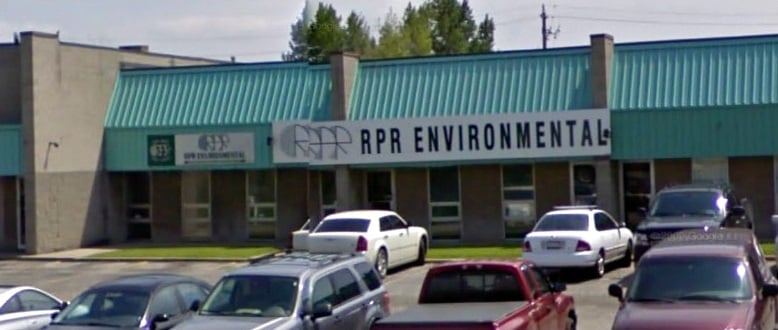An Ontario waste disposal company is fighting a court order that would require it to relinquish and destroy copies of documents that the federal government says were accidentally released through access to information legislation.
The company alleges that the documents show evidence of wrongdoing on the part of government officials pursuing the company on charges that it did not properly document toxic waste shipments.
The access to information documents were disclosed in relation to a court case that began almost a decade ago. In 2007 and 2008, Environment Canada investigators executed search warrants at RPR Environmental's offices in Stoney Creek, Ont., looking for evidence to support charges that the company hadn't provided proper documentation for toxic waste it had transported into the U.S. for disposal.

Environment and Climate Change Canada was not able to provide a response to National Observer's queries before publication time.
Charges against the company that were brought after the first raid were dropped, as were a second set of charges filed in January 2008. RPR is also suing Environment Canada and the Attorney General for malicious prosecution and defamation.
Tony Bratschitsch, a business consultant who works with RPR, said the company strongly disputed those charges and has argued that it provided the proper documentation to the Canada Border Services Agency.
RPR filed dozens of requests under the federal Access to Information Act, looking for documents that could bolster the company's case against the federal government.
Bratschitsch told National Observer that he filed 62 requests over five years, which yielded hundreds of pages of documents from Environment Canada, the Public Prosecution Service, the Canada Border Services Agency and Transport Canada. “It's one of the few ways to keep the government accountable,” Bratschitsch said in an interview.
He also received a handful of documents that described communication between Environment Canada's enforcement officers and Sandra Antoniani, a lawyer hired by the Crown to prosecute the case. Court records show that Crown attorneys didn't realize the documents had been unintentionally released until 2015, when they appeared in court in RPR's lawsuit against the federal government.
The Crown later moved to have the documents returned and all copies destroyed, arguing that they contained information subject to solicitor-client privilege. Antoniani, who is a separate defendant in RPR's lawsuit against the federal government, asked the court to either rule that her communication with Environment Canada enforcement agents was privileged, or allow the federal government to release more privileged documents that she said would exonerate her.
In a ruling on Dec. 13, an Ontario Superior Court judge agreed that the documents were privileged and that RPR should return them and destroy all copies.
Bratschitsch said the company has asked to appeal that decision. He said the company, which has argued that it was unfairly targeted by Environment Canada, believes that the documents released could help its lawsuit against the federal government.
Ontario Superior Court Judge Myers did not comment on the relevance of the privileged documents, but wrote in the Dec. 13 decision that "there has been much overkill and disproportionate document review and production in this litigation."
While Crown had shown “a lack of due care and attention” in releasing the privileged information, Myers wrote, given the volume of documents involved, “it is well understood that mistakes happen.”
Myers concluded that after receiving documents that appeared to be privileged, RPR's lawyer should have informed the sender to confirm that they hadn't been released by accident.
"The documents ought to have been set aside and not further reviewed or utilized until this was clarified ... By failing to alert the Crown’s lawyers to the issue, the plaintiffs and their counsel took upon themselves the risk that the documents might later be found to be privileged," Myers wrote.
“It doesn't happen often, but the rule is, if it's been disclosed accidentally, in error, you don't have a right to use it, just because somebody made a mistake. You cannot mount a defence based on it,” explained Michel Drapeau, an Ottawa-based lawyer with extensive experience in access to information law.
“Obviously you cannot put the genie back in the bottle – whatever information was released, has been released and it's known. But in legal terms, a judge will not be able to take judicial notice of it … yes, he's heard it, he knows, he might even have seen it. But he has to disregard it,” Drapeau said in an interview. “That's the rule. Why? Because the Supreme Court believes it's important to protect the client-solicitor privilege.”
He said privileged documents are occasionally accidentally disclosed but it is uncommon to see such documents appear in court, because the rules around handling accidental disclosures should prevent that from happening. "It's certainly covered in law school," he said.
The Dec. 13 ruling came with a heavy price tag: in January, the court ordered RPR to pay the Crown $25,000 in court costs related to the argument over the documents The company also was ordered to pay $45,000 in relation to another motion from RPR that asked the federal government to produce another large batch of documents – an effort that the court said “had no reasonable expectation of obtaining anything of value” and “served no purpose except to lengthen proceedings and harass the Crown.”
Ken Rubin, a researcher and transparency advocate who has worked on access to information issues for several decades and lobbied for the creation of Canada's access laws, said the court's reaction to RPR's use of the information was excessive.
“What if the courts and officials spent the time and powers proactively releasing info and penalizing those seeking secrecy?” Rubin said in an email.
Sean Holman, a journalism professor at Mount Royal University in Calgary whose research includes access to information legislation in Canada, said that in general, “the black box that is created by solicitor-client privilege” can conflict with the public's right to know about government decisions.
“Is it right that whenever the government has dealings with a lawyer that the public is unable to pierce that particular veil and see what is going on? That does not seem to be in the public interest,” he said. “Should not taxpayers and citizens have a right to know the government's legal dealings? That is an interesting question.”
Editor's note: This story was updated at 11:00 am on Tuesday to remove an incorrect reference to ongoing charges.
My sympathies are with RPR
My sympathies are with RPR for seeking to sue the government for malicious prosecution. However, their lawyer appears to be overzealous and forgotten the rules learned in law school. He/she should have returned the documents when it was obvious they were privileged. One wonders if there was not enough evidence in the other documents to sustain their case.
One should wonder if the
One should wonder if the government officials had adequate training in executing their three consecutive search warrants and laying and withdrawing hundreds of charges within a seven month period of time. These twelve hour searches were captured on video and audio surveillance tapes. One should wonder what they have to hide? Proper procedures were followed in obtaining information thru the ATIP process over a five year period of time.
In 2014 the BC Liberal
In 2014 the BC Liberal government introduced and passed Bill 2. This gave select geographical groups of BC voters more than twice the legislative power of the average voter. This is surely unconstitional. I would love to see the legal advice given to the government on this question. I fail to see why this should be protected by solicitor-client privilege; it is surely in the public interest to know it.





Comments